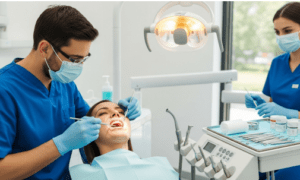Most would agree that good health is the most precious thing we can ever own, and this is not in any way an understatement. After all, good health allows us to enjoy all that life has to offer, from traveling and seeing the world to spending quality time with friends and family, for example. Indeed, when chronic health problems are a nonissue, these things and many others are easier to do. While we can’t dodge every illness that endeavors to threaten our good health, we can escape the grasp of some of them. And thanks in part to breakthroughs in modern medicine, coupled with a few technological advancements, doing so is not impossible. Adopting a few healthy lifestyle habits can help in this regard as well.
Cardiology Issues: How Taking Care of Your Heart Might Just Save Your Life
Heart health is not exactly top of mind for most people unless they, of course, develop cardiovascular disease. According to the Cleveland Clinic, an esteemed nonprofit academic medical center based in Ohio, along with heart attack and stroke, the following are all forms of cardiovascular disease:
- Arrhythmia
- Valve disease
- Coronary artery disease
- Peripheral artery disease
- Aortic disease
- Congenital heart disease
- Pericardial disease
- Cerebrovascular disease
- Deep vein thrombosis
The most common of these varying forms of cardiovascular disease is coronary artery disease, which currently affects the lives of some 19 million American adults, notes a study published by the Centers for Disease Control and Prevention (CDC). Of course, the other forms of cardiovascular disease are not too far behind relative to the sheer number of people affected by them.
Lifestyle Habits and Technological Devices for a Healthier Heart and Body
When it comes to improving your heart and overall health, the following are all physician-approved ways to accomplish both:
Losing weight – From pedometers to digital weight scales, there are plenty of technological devices that can help individuals shed excess pounds and, in turn, lower their risk of cardiovascular disease. Of course, these devices are considerably more effective when individuals consume a healthy, well-balanced diet and exercise regularly.
Cleaners – Although not technologically based in any way, adding detox drinks to your diet is another way to improve heart and overall health, say many nutritionists and physicians who agree that consuming such drinks can provide the following health benefits:
- Weight loss
- Removal of toxins
- Balanced pH levels in the body
- Improved digestive health
- Helps to boost immune function
- Improved overall mood
- Ramps up energy levels
- Improved skin complexion
Sleep improvers – Many devices currently on the market can help individuals get a good night’s sleep. And this is a good thing considering that sleep deprivation can give way to hypertension and heart disease, says the CDC. Also, in a separate study from the Cleveland Clinic, researchers found that sleep deprivation can set the stage for a weakened immune system, obesity, depression, and low libido. It can also increase the risk of developing type 2 diabetes. That said, continuous positive airway pressure (CPAP) machines can help those struggling with sleep apnea. What’s more, there are over-the-counter sleep aids and sound machines that can benefit those who struggle with insomnia.
Traditional Ways to Achieve a Healthier Heart and Body
Health screenings and blood work – According to nearly all physicians, routine physical exams that include blood work can provide valuable insights relative to our overall health, including hormonal imbalances. And this is important since low human growth hormone (HGH) levels, for example, has been associated with the following:
- Impaired cardiac performance
- Low heart rate
- Impaired left ventricular systolic function
It is worth noting that low HGH levels or a full-on human growth hormone deficiency can trigger several other health problems as well, including anxiety, depression, fatigue, decreased muscle mass, and increased belly fat. While we are on the topic, blood work can also provide a lot of information relative to glucose levels in the blood. For reference, studies show that consistently elevated glucose levels can put individuals at risk of developing high cholesterol, diabetes, and hypertension. As part of a routine physical, many physicians will also evaluate an individual’s hydration levels and check for low testosterone, estrogen, and other hormonal imbalances.
Treating a Hormonal Imbalance
For those with heart problems caused by an HGH deficiency, growth hormone replacement therapy (HRT) can help. This treatment modality involves using FDA-approved growth hormone replacement drugs, such as Humatrope, Saizen, Norditropin. They increase natural secretion of Somatropin and boost low HGH levels, which, in turn, eases many of the symptoms commonly associated with Growth hormone deficiency. And there are very few side effects associated with this type of treatment. For instance Norditropin side effects include commonly reported include redness, irritation, itching, or swelling at the injection site when the drugs are administered. A few of the less common ones include the following:
- Edema
- Headaches
- Nerve, muscle, or joint pain
- Nausea
Urine tests – Along with low blood glucose levels and hormonal imbalances, a urine test, as part of a routine physical exam, can also reveal a lot about someone’s overall health, everything from diabetes to thyroid problems. Some urine tests can also detect protein expressions or biomarkers typical of coronary artery disease and other heart problems.
Bottom Line
In summary, there is no singular approach when it comes down to looking after your health. It should be a multi-faceted undertaking that includes consuming a healthy, well-balanced diet, exercising regularly, getting enough sleep, and scheduling routine health screenings with a licensed physician. The more we do these things, the healthier we will be in the long run.



































